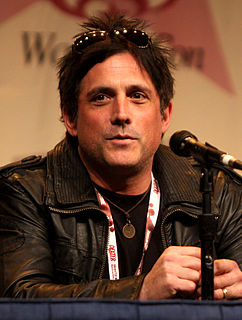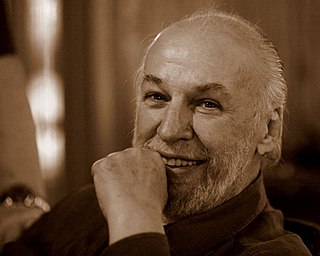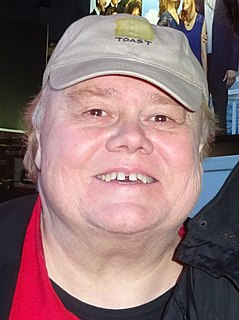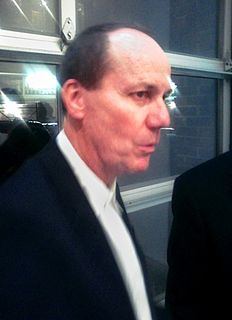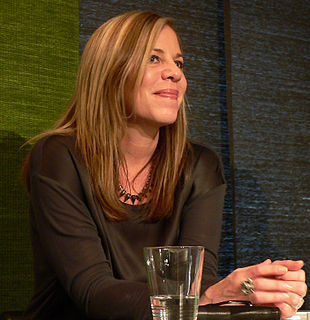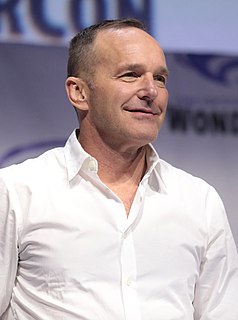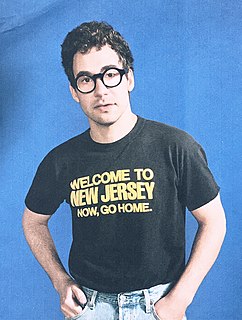A Quote by J.H. Wyman
Once people start to realize the consistency of quality that is coming, they'll start to open up their minds a little more and say, "Wow, this is great. I'm going to tune into this." It's not just for the geeks and the people that are into it. It's actually really fascinating. That's my take on it.
Related Quotes
Now that I'm afraid was institutionalized, and the great thing about the Canadian content regulations is that it broke that open. I mean it broke it open because people were faced with no choice, but to really start listening to these records and find the ones that they could play. It didn't take long for Canadian radio to go "Wow! We're not going broke doing this, it's not killing us, the audience isn't complaining."
There have been times in my adolescence where I gave up. I was like, 'I'm just never going to be pretty. I'm never going to be like one of those people on the front of magazines.' It always seemed really strange to me that the projection of how people are in advertisements looked nothing like the people who were actually buying them. You know what I mean? I never understood that mismatch, and now I really start to see that the people you see in the media are a lot more like people actually are.
I think Splash made people realize that I was still alive, and I think I inspired a lot of people. I have people coming up to me all the time in the airport saying, "Hey, you inspired me to learn how to swim!" "You inspired me to start moving around more." "You inspired me to start doing more for myself." So that was good. But mostly I took it because nobody had given me a job. And you know what really matters in life, right?
I think with success you do get a little more guarded and you start to change your friends. You become more isolated. And you start hanging around with people who have money! I think that's the biggest thing. Once you do get a bit of change in your pocket, you start hanging around with other people who have some change. It was kind of strange to all of a sudden go from one extreme-Manhattan-to where I went, upstate New York. But I did it because I was dying in the city. I couldn't take it. I couldn't take one more dinner party. I couldn't take one more party, period.
And I start to say, no. Start to ask him to please just take it off and put it away. Start to explain how it holds far too many memories for me. But then I remember what Damen said once about memories - that they're haunting things. And because I refuse to be haunted by mine - I just take a deep breath and smile when I say, "You know, I think it looks really good on you. You should defiantly keep it.
I think any start has to be a false start because really there’s no way to start. You just have to force yourself to sit down and turn off the quality censor. And you have to keep the censor off, or you start second-guessing every other sentence. Sometimes the suspicion of a possible false start comes through, and you have to suppress it to keep writing. But it gets more persistent. And the moment you know it’s really a false start is when you start … it’s hard to put into words.
In my normal way of doing things, there's a little bit of 'going native' that takes place, where you're in a world long enough, you can't really help but start to see things in a nuanced, more humanistic way. Just because you're with people and you start to, in general, slightly like the people you're with.
In my normal way of doing things, there's a little bit of 'going native' that takes place, where you're in a world long enough, you can't really help but start to see things in a nuanced, more humanistic way. Just because you're with people and you start to in general slightly like the people you're with.
Once you start to ask patients about their priorities, you discover what they're living for. Once you uncover that, it helps you, as a doctor, decide what to fight for. And when we do that, we often end up identifying limits to the kind of care that people want. One's assumption is that these people are going to live shorter lives, but what we're doing is protecting quality of life. In doing so, you sometimes end up helping people live longer. Certainly, you help people live better days and with more purpose in their lives.
For me, to represent people who represent the future of Canada and the great challenges we will face over the coming decades - this is where I wanted to start. I'm a teacher; I'm a convenor; I'm a gatherer; I'm someone who reaches out to people and is deeply interested in what they have to say. And people see that I'm not faking it. I'm actually genuinely committed to this dialogue that we're opening up, and this understanding that needs to happen in order to be an effective MP.
